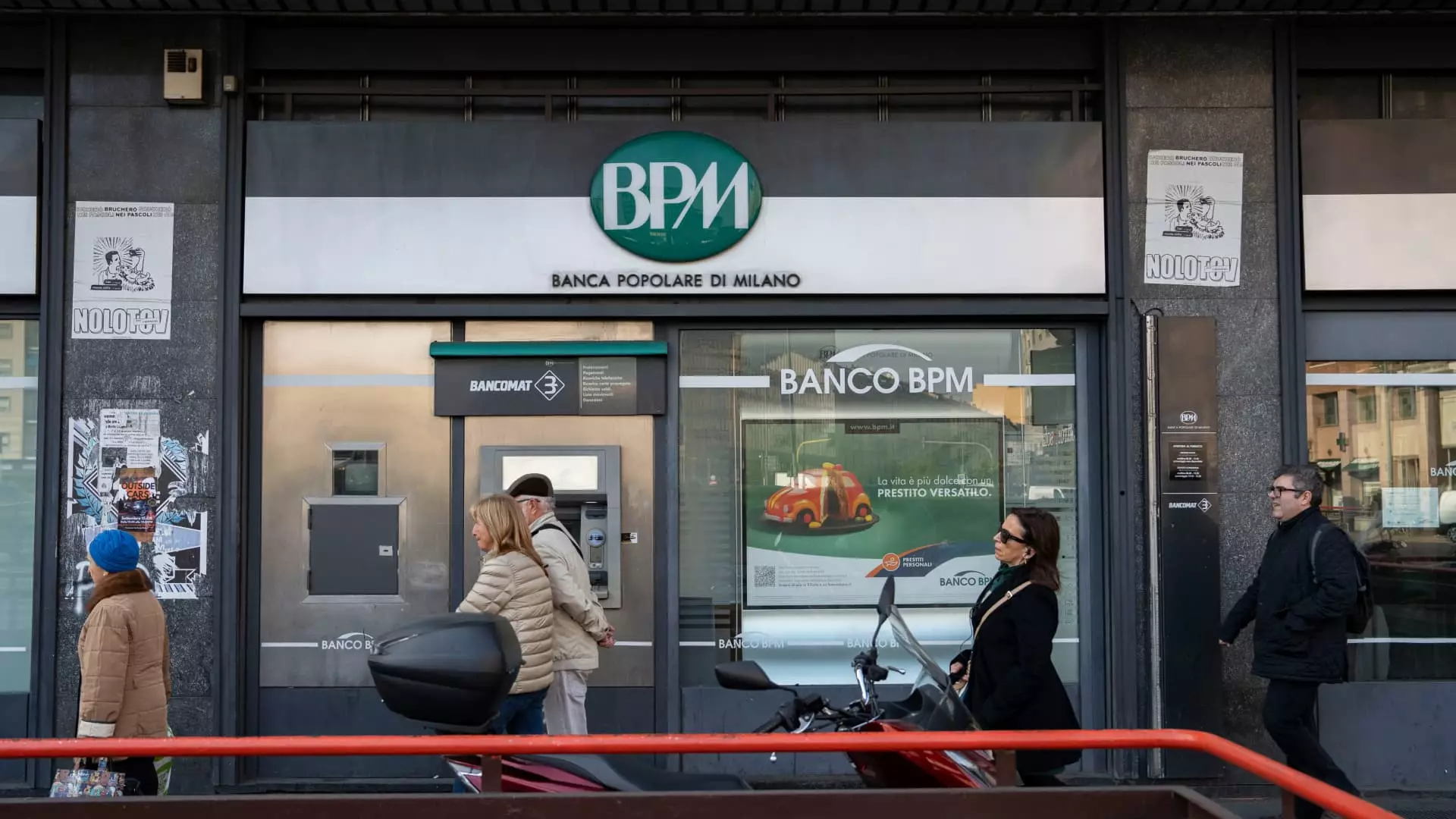The Italian banking sector is once again in the spotlight with the recent unexpected takeover bid made by UniCredit for Banco BPM. On Tuesday, Banco BPM’s management firmly rejected the €10 billion ($10.52 billion) offer, arguing that it does not adequately represent the bank’s market potential or value. This analysis investigates the nuances of the offer, the reactions from Banco BPM, and the broader implications for the Italian banking industry amidst UniCredit’s competing ambitions.
Following UniCredit’s proposal, Banco BPM’s board articulated strong reservations regarding the takeover’s conditions, labeling them “unusual.” They contend that the swift timelines suggested by UniCredit could infringe upon Banco BPM’s legal autonomy, emphasizing that a merger under such circumstances would not only undermine their current operational independence but also disregard the intricacies involved in merging two significant banking entities.
The management underscored that the offer, which was only marginally higher than previous trading prices, fails to reflect Banco BPM’s profitability and growth potential. This point of contention highlights the importance of accurately valuing financial institutions, especially in the context of potential mergers and acquisitions where stakeholders’ interests are at stake. By asserting that the offer does not represent fair value, Banco BPM is suggesting a cautious approach to consolidations in the banking sector, which can often be fraught with challenges and complexities.
UniCredit’s ambitions, driven by CEO Andrea Orcel’s vision for stronger, competitive banking entities in Europe, come at a time of significant upheaval within the sector. Notably, it has been attempting to increase its stake in Commerzbank, signaling a desire to expand beyond Italian borders. However, the German government has expressed reluctance, complicating UniCredit’s maneuvering.
Banco BPM’s refusal of the takeover bid puts into perspective the competitive landscape of the national and regional banking sectors. With various banks pursuing strategies for expansion and consolidation, the potential for significant market shifts is evident. Recently, Banco BPM itself has been active in the market, acquiring a 5% stake in Monte dei Paschi, an entity that had earlier been linked to UniCredit’s attempted takeovers. This strategic movement hints at Banco BPM’s intent to strengthen its position rather than surrender it to a competing lender.
The Italian government’s perspective on such high-stakes negotiations cannot be overlooked. As articulated by Economy Minister Giancarlo Giorgetti, there are inherent risks when a single entity attempts to penetrate multiple markets simultaneously. The sentiment suggests that an overambitious strategy could compromise the stability and strength of a fundamental division of the economy.
Furthermore, stakeholders associated with both banks stand to be impacted by any shifts that would arise from a merger. Banco BPM’s board highlighted concerns over how UniCredit’s acquisition plan might lead to an “uncertain” trajectory for its own expansion strategies, particularly in light of its geographical presence. The stakes are particularly high for shareholders who depend on the banks’ robust performance.
As the narrative unfolds, it becomes evident that the proposed acquisition of Banco BPM by UniCredit signifies much more than a mere business transaction. It encompasses deeper reflections on the role of banks in Europe’s economic structure, national interests in banking stability, and the need for fair valuations in the face of potential mergers.
The interplay between Banco BPM and UniCredit, set against a backdrop of European banking consolidation efforts, suggests that the future of Italian banking may hinge significantly on how each bank navigates this turbulent landscape. While there are opportunities for growth and collaboration, caution must govern the decisions of both entities to ensure the integrity and autonomy of their operations in a rapidly evolving market. As these discussions proliferate, it will be interesting to observe whether other banks will take similar stances against merger offers that appear misaligned with their valuations and long-term interests.

